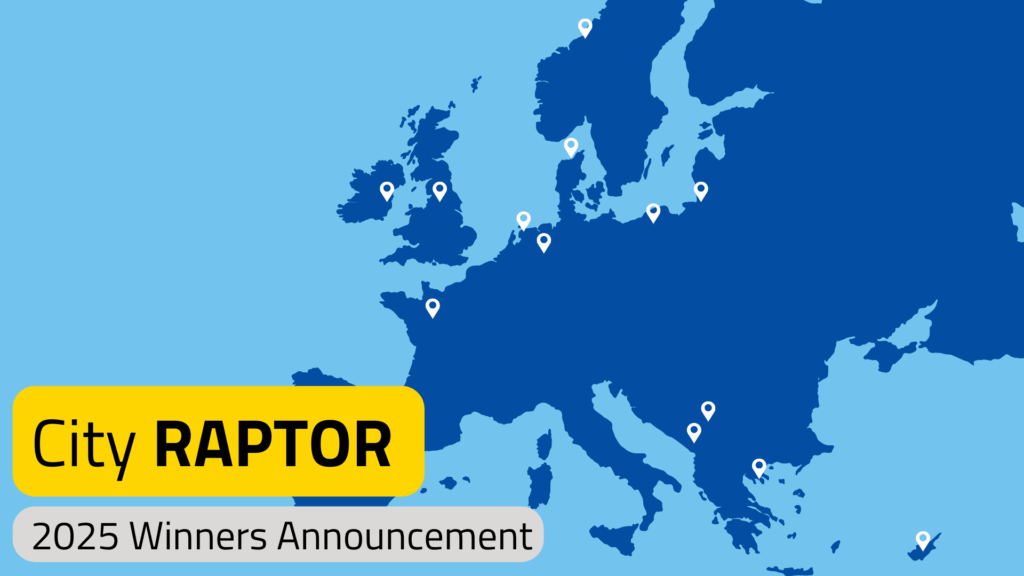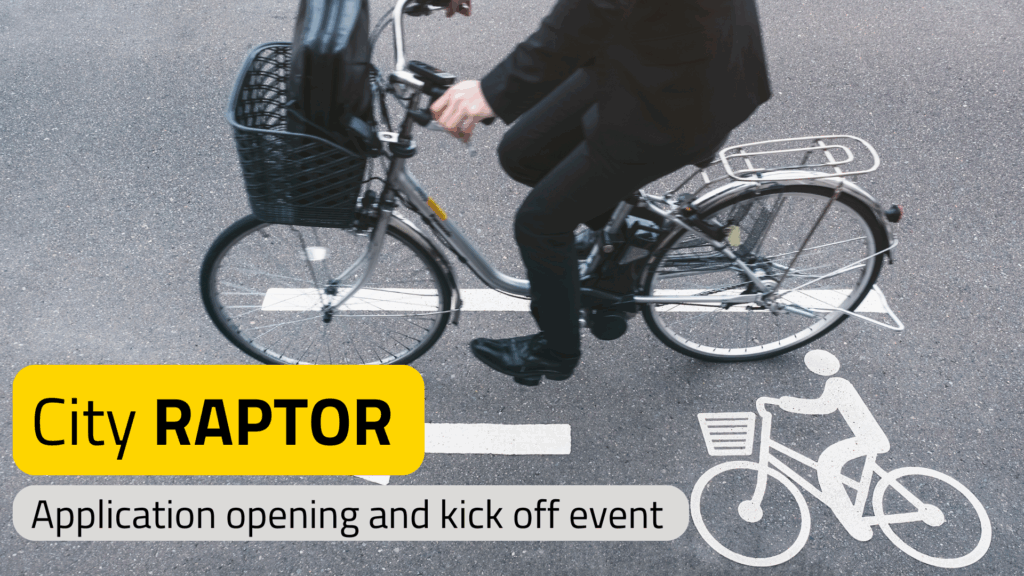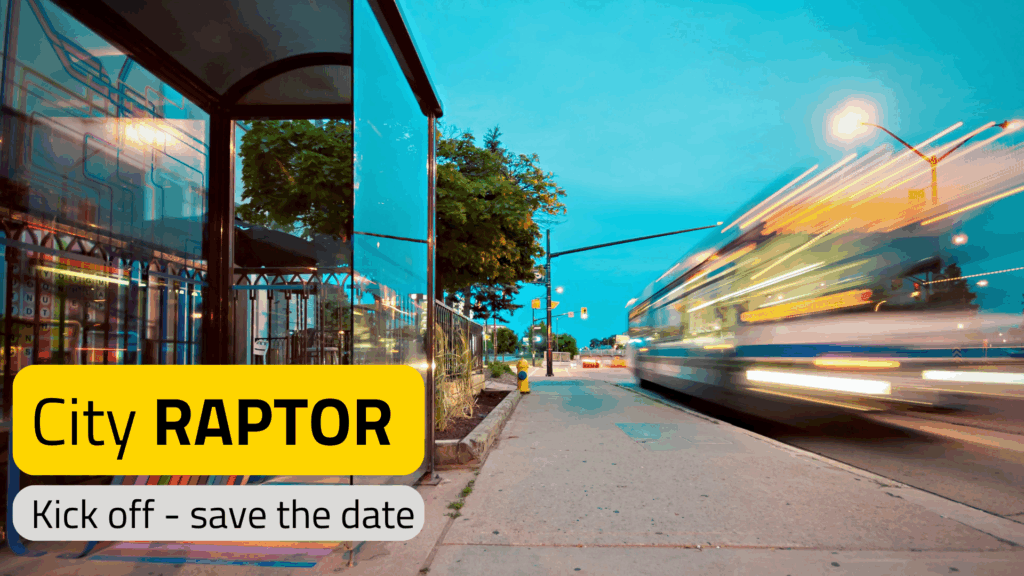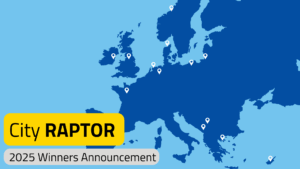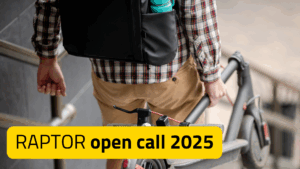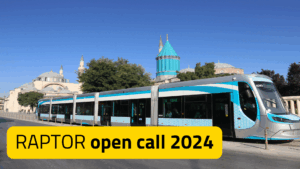Thirteen European cities to pilot cutting-edge mobility innovations
EIT Urban Mobility is excited to announce the selected startups and SMEs for the sixth edition of its flagship RAPTOR (Rapid Applications for Transport) programme. As a cornerstone of agile innovation in sustainable urban mobility, RAPTOR 2025 is set to pilot transformative solutions in 13 European cities, each responding to a specific, locally identified challenge by participating cities.
This year’s cohort of participating cities spans a diverse geographic and socio-political landscape, reflecting the programme’s adaptability to local contexts and commitment to co-creating people-centric mobility solutions. The RAPTOR programme enables startups and SMEs to rapidly prototype and test their ideas in real urban environments in direct collaboration with city authorities.
Adriana Diaz, Director of Innovation at EIT Urban Mobility, emphasises, “With RAPTOR entering its sixth edition, we reaffirm our commitment to creating a dynamic platform where cities and startups co-create practical mobility solutions. This year’s reach across thirteen cities exemplifies how targeted innovation, driven by local challenges, can lead to tangible improvements in the daily lives of citizens. It is this agility and responsiveness that make RAPTOR a unique engine for transforming urban mobility across Europe.”
A city-by-city look at the 2025 winning startups
- Aarhus, Denmark: GoodVision (Czechia) will tackle accessible parking with an AI-driven curbside management system. By tracking usage and violations, the solution enhances mobility for people with disabilities and ensures fairer use of urban space.
- Belgrade, Serbia: Seedia (Poland) introduces a smart information totem that uses AI to analyse real-time flow of pedestrian, cyclist, and scooter traffic—helping the city improve safety and plan more efficient routes.
- Dublin (Dún Laoghaire-Rathdown), Ireland: Kerb-e (UK) offers a modular street-level EV charging solution to improve public charging access and support sustainable energy goals without compromising pedestrian infrastructure.
- Greater Manchester, UK: Moonbility (UK) will develop GreenRipple, a multimodal digital twin that monitors network disruptions and how these impact travel decisions and thus carbon emissions.
- Mannheim, Germany: GoSpace (Slovakia) addresses parking congestion by unlocking private parking through its digital platform ParkingAround, linking underused spaces with demand.
- Nantes, France: Sanka Cycle (France) introduces Sanka BOB, a quadricycle cargo bike designed for daily urban use—offering families a compelling alternative to owning a second car.
- Nicosia, Cyprus: Omnia Smart Technologies (UK) deploys AIOne, a smart waste collection system combining AI, GPS, and RFID-tagged bins to cut emissions and optimise routes.
- Podgorica, Montenegro: TEA Group (Italy) will fuse environmental and mobility data to track emissions and forecast pollution trends, providing actionable insights for achieving climate neutrality.
- Poznań, Poland: MOVIRO (Germany) enhances commuter confidence with real-time updates on transit disruptions via its Transit Orchestration platform.
- Tauragė, Lithuania: Univrses (Sweden) employs AI and machine learning to assess and maintain bus stop infrastructure, using video analytics to improve safety and optimise their management.
- Thessaloniki, Greece: Mobito (Belgium) delivers data orchestration for urban freight, allowing for emission tracking and more strategic, CO₂-conscious urban planning.
- Trondheim, Norway: Digital Reflections (UK) uses LiDAR technology to monitor loading zones, giving cities precise, real-time data to improve logistics and reduce last-mile congestion.
- Utrecht, Netherlands: Umob (Netherlands) boosts Park & Ride (P&R) usage through an app that allows users to search, book, and pay for combined parking and multi-modal transit tickets.
Looking ahead
The pilots will run until November 2025, during which each startup will work closely with their host city to refine and validate their solutions. This real-world testing phase includes citizen engagement to gather feedback and ensure that innovations are not only technically robust, but also socially accepted and scalable.
RAPTOR continues to be a vital platform that bridges city needs with entrepreneurial ingenuity, reinforcing the EU’s mission to foster sustainable, inclusive, and smart urban mobility ecosystems.

